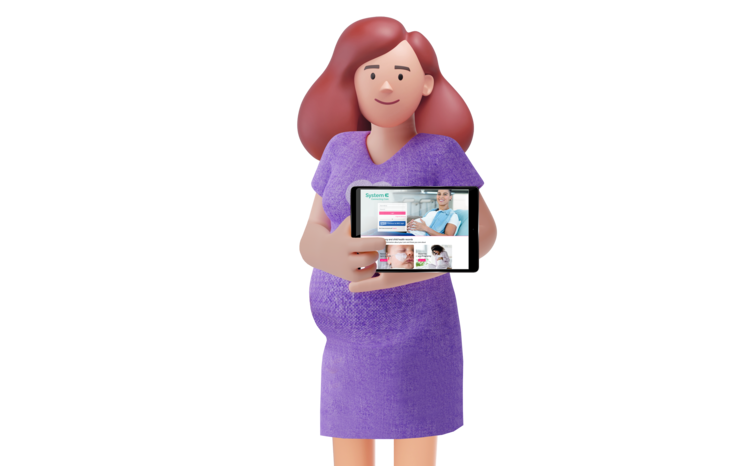Digital Aspirant St Helens and Knowsley fast-tracks digital transformation
- 7 April 2021

St Helens and Knowsley Teaching Hospitals NHS Trust has reduced paper and developed a real-time system for managing patient flow using clinical modules from its electronic patient record.
The fast-tracking of the trusts digital transformation plans was made possible with funding from NHSX’s Digital Aspirants programme.
Funding was used to improve digital maturity using modules in the trust’s System C electronic patient record (EPR).
It includes moving clinicians off paper for assessments, referrals and handovers and the deployment of a real-time system for managing the flow of patients through the hospital.
Other plans include the introduction of electronic care plans and a clinical workspace which gives clinicians a single view of essential clinical information with single sign on to integrated systems.
The latest phase of the programme has included replacing paper-based processes with integrated digital workflows including electronic handovers.
The system streamlines processes and standardises formats to improve consistency, efficiency and patient safety. To date, 124,000 handovers have been completed using CareFlow with 31,000 carried out in March.
Christine Walters, director of informatics at the trust, said: “Early evidence is showing the new functionality is saving around 20 minutes per ward round and we are planning a robust benefits study later in the year.
“It’s a brilliant example of technology enabling increased productivity and quality of care, which is a major plus in the trust’s drive to better support our staff and patients.”
The trust also plans to move assessments to a digital setting, with nurses using mobile devices to complete dementia screening and nutritional and alcohol assessments. It’s planned to go live across the trust in April.
A mobile care collaboration system is also planned to allow staff to work together around the needs of the patient. It will include the ability to create live patient lists including observations and results, a system that proved vital for co-ordinating care during Covid-19.
Further Covid-19 response activities include the development of integrated alerts and tagging within the CareFlow EPR. Clinical teams can opt into being immediately alerted to positive Covid-19 results from the patient administration system to their mobile devices and are able to track and monitor associated patients using the clinical tagging feature.
Andrew Hill, chief clinical information officer at the trust, said: “This has been a clinically-led programme across the trust which is being embraced brilliantly by staff.
“The high levels of interaction are leading to further innovative uses and benefit realisation. It is a good example of technology modernising processes in action.”
Andy Ashton, emergency department consultant, added: “It is particularly useful that it [CareFlow EPR] works on PC and mobile devices. Emergency department consultants and medical registrars are frequently on the move so being able to use CareFlow on the phone is very helpful.
“The phone has now become a shorthand access device to find the early warning score and results for your patient.
“In orthopaedics they are also using the new system to maintain dynamic lists of patients for theatre. The theatre staff love it because they know exactly where the patients are when they go to collect them.”
The trust recently went live with a telehealth and video consultation platform from Refero which allows clinicians to have multi-party consultations with up to 50 participants. The platform fully integrates with System C’s CareFlow.
The platform aims to reduce administration time and provide better support to families, carers, interpreters or other clinicians on a patient’s video consultation. It is already in use in more than 40 services at the trust.
Rowan Pritchard-Jones, medical director the trust, said: “The new multi-party functionality means we can provide the best possible care for our patients in a video consultation setting.
“It allows family members to join the consultation if needed, the opportunity for language interpreters to support patients from mixed nationalities, and indeed training our junior doctors in these unusual times of delivering specialist care.”
St Helens and Knowsley Teaching Hospitals NHS was announced in the first wave of Digital Aspirants in March 2020.
The second wave of trusts to receive funding on the Digital Aspirant programme was revealed by health secretary Matt Hancock at Digital Health Rewired 2021.
Sonia Patel, chief information officer at NHSX, said: “Supporting frontline NHS organisations to digitally transform is at the heart of NHSX.
“The Digital Aspirant programme is key to supporting those organisations that need more assistance.
“Trusts like St Helens and Knowsley are fantastic examples of the benefits that digital can bring when an organisation is committed to transform.”
Formally announced in December 2019, the Digital Aspirant programme aims to accelerate procurement, deployment and uptake of the technology that is needed to underpin digital transformation.
It aims to raise the bar across the NHS by making sure organisations have a core set of digital capabilities in place, NHSX said when the programme was announced.
Trusts selected as part of the programme are expected to be announced in waves up until 2024.




